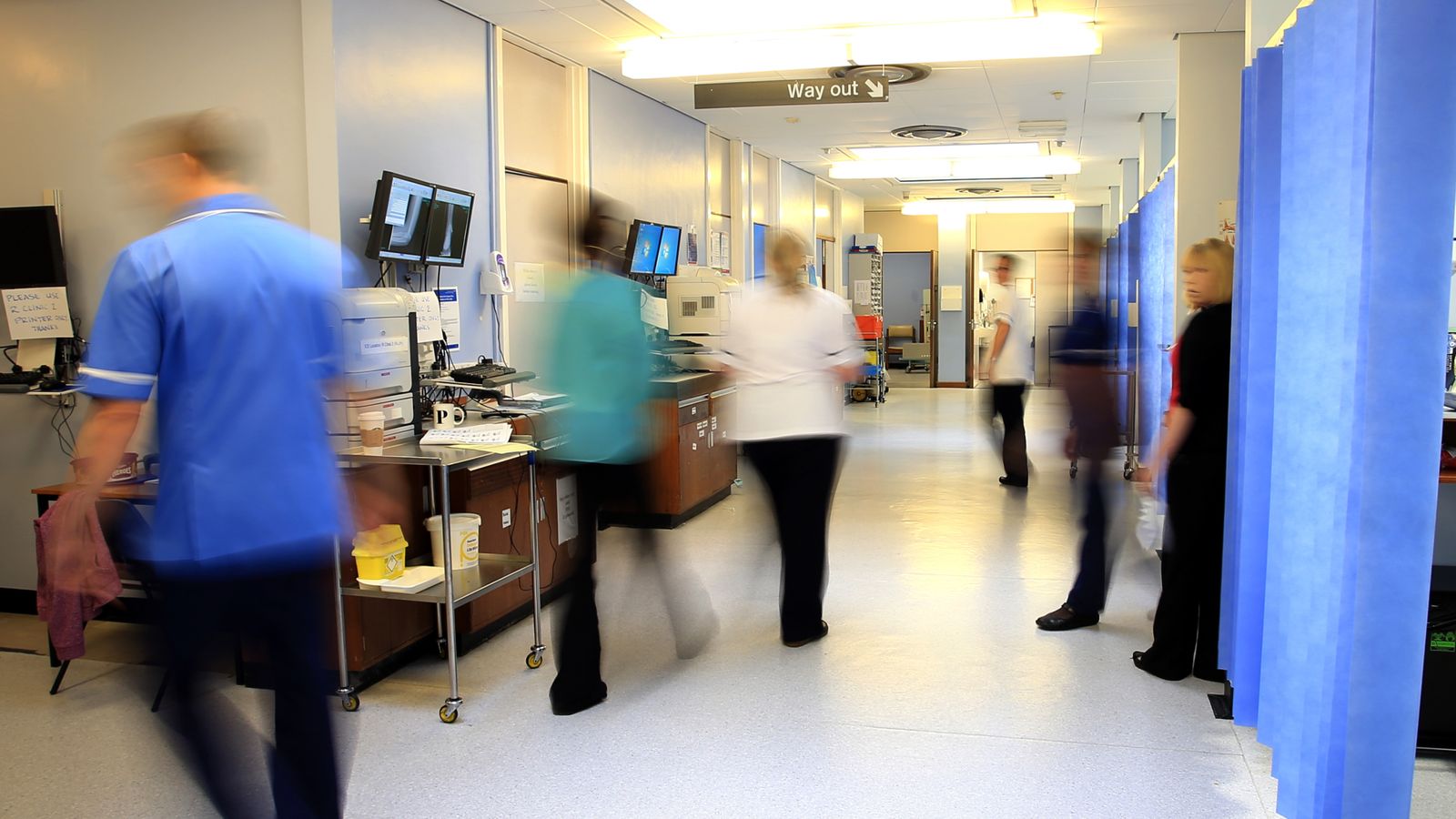NHS workers had to be given salary top-up to avoid minimum wage breach, GMB union head says

The lowest paid NHS workers had to be given a salary top-up this year to avoid breaching national minimum wage laws, the head of a union said as she pleaded with ministers to negotiate pay.
Rachel Harrison, national secretary of the GMB union, told MPs that NHS staff had to be given more money this year by the health service.
Ambulance workers who are GMB members are striking on Wednesday, while nurses are taking industrial action today as both call for better pay, working conditions and patient conditions.
Nurses launch second day of strikes – live politics updates
Ms Harrison told the Health and Social Care Committee workers such as cleaners, call handlers, caterers and patient transport staff were being paid less than the minimum wage so had to be given more money to avoid the NHS being prosecuted by HMRC.
Click to subscribe to the Sky News Daily wherever you get your podcasts
The national minimum wage has been £9.50 an hour for adults aged 23 and over since April this year and was £8.91 the year before. It is rising to £10.42 from April next year.
If an employer does not pay the national minimum wage HMRC can fine them up to £20,000 and take criminal legal proceedings.
Ms Harrison warned the NHS “will be in the same position” this year because the government is refusing to negotiate on pay for this fiscal year, ending in April.
Advertisement
“These are people that carry out crucial jobs within our NHS,” she told MPs.
“And because of a dated and not fit for purpose pay review body process that significantly delays getting money into people’s pockets and the approach of this government towards public service cuts and austerity means that we have got members working right across the NHS on low pay and this is the exact reason we’re seeing them leave.?”
Read more:
Who is striking this Christmas and why?
How and who decides public sector pay?
Rail services to be crippled for a week – here are the latest strike dates
Please use Chrome browser for a more accessible video player
0:24
‘Door is open’ to unions, says health minister
She added that she does not expect a pay offer to be made at a meeting later today with the health secretary after health minister Will Quince earlier told Sky News it would be about which cases ambulance workers would have to go to during the strike – and not pay.
“We’ve been given half an hour to meet with the secretary of state to discuss an emergency cover for tomorrow, which considering our strike starts at midnight, is a bit late in the day,” she said.
“But those agreements have already been reached at local level. So unless the secretary of state is willing to talk to us about pay today, those strikes are set to go ahead.”
Please use Chrome browser for a more accessible video player
0:26
‘We’re committed to continue strikes’
Ministers have continually insisted pay negotiations are not up to them as the independent pay review bodies recommend what salary increases should be, and the government has accepted that.
The pay review bodies are made up of experts in their field without political affiliations who take evidence from a range of sources, including trade unions and staff.
Ms Harrison pleaded with Mr Barclay to talk to the unions and make a pay offer and accused the government of being behind the pay review body’s recommendation.
“GMB is refusing to engage with the pay review body this year because we believe the government is behind that recommendation that was made back in the spring of this year,” she added.
“And we believe that what we actually need to see is true reform of the pay review body process.”